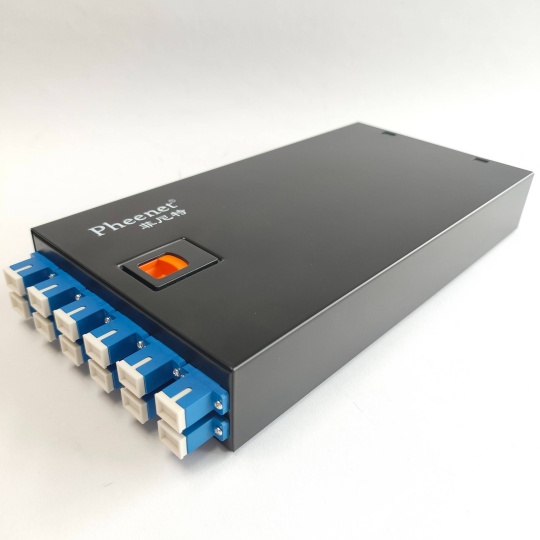Industrial Cable Assemblies: The Unsung Backbone of Barcode Scanner P...
In today’s fast-paced industrial environments—from automotive assembly lines and warehouse logistics to pharmaceutical packaging—barcode scanners are indispensable tools for tracking assets, streamlining workflows, and ensuring data accuracy. Yet, while the scanner’s optical lens and decoding software often take center stage, the industrial cable assembly connecting the scanner to power sources, data networks, or host systems remains the unsung hero. Without a reliable cable assembly tailored to industrial demands, even the most advanced barcode scanner fails to deliver consistent performance, leading to costly downtime, data errors, and operational inefficiencies.
1. Core Roles of Industrial Cable Assemblies in Barcode Scanner Operations
Industrial barcode scanners operate in far harsher conditions than their retail or office counterparts—exposed to vibration, temperature fluctuations, oil, dust, and repeated mechanical stress. Industrial cable assemblies are engineered to address these challenges, fulfilling three critical functions:
1.1 Ensuring Uninterrupted Signal Integrity
Barcode scanners rely on real-time data transmission to sync scanned information (e.g., product IDs, batch numbers) with enterprise resource planning (ERP) or warehouse management systems (WMS). Industrial cable assemblies use shielded conductors (e.g., twisted-pair shielding, foil shielding) to block electromagnetic interference (EMI) from nearby machinery (such as motors or conveyor belts) and radio frequency interference (RFI) from industrial IoT devices. This prevents data corruption—like garbled barcode data or delayed transmission—that could disrupt inventory counts or order fulfillment.
1.2 Withstanding Mechanical Wear and Tear
In high-volume operations, barcode scanners are often mounted on moving parts (e.g., robotic arms) or used as handheld devices that undergo frequent bending, twisting, and 插拔. Industrial cable assemblies are constructed with durable materials:
- Jackets: Polyurethane (PU) or thermoplastic elastomer (TPE) jackets resist abrasion, oil, and chemical spills common in manufacturing.
- Conductors: Stranded copper conductors (instead of solid copper) enhance flexibility, allowing the cable to withstand thousands of bending cycles without breaking.
- Connectors: Ruggedized connectors (e.g., M12, USB Type-C industrial grade) feature secure locking mechanisms to prevent accidental disconnection from vibration.
1.3 Adapting to Extreme Environmental Conditions
Industrial facilities vary widely in environment—from freezing cold warehouses (-20°C) to high-temperature automotive paint shops (80°C) or humid food processing plants. Industrial cable assemblies are rated for specific temperature ranges, ingress protection (IP) levels (e.g., IP67 for dust and water resistance), and even food-grade compliance (for sectors like food and beverage). This ensures the cable assembly functions reliably without degradation, regardless of the setting.
2. Key Considerations for Selecting Industrial Cable Assemblies for Barcode Scanners
Choosing the right cable assembly is not a “one-size-fits-all” process. To maximize barcode scanner performance, buyers and engineers should focus on three critical factors:
2.1 Signal Compatibility with Scanner Interfaces
Barcode scanners use different interfaces to transmit data and receive power, and the cable assembly must match these requirements:
- Wired interfaces: RS-232 (for legacy systems), USB 3.0/4.0 (for high-speed data), and Ethernet (Cat5e/Cat6 for networked scanners) require cables with corresponding conductors and shielding to support their bandwidth needs.
- Power-over-Ethernet (PoE): For networked scanners, PoE-enabled cable assemblies (e.g., Cat5e PoE) eliminate the need for separate power cables, simplifying installation and reducing clutter on factory floors.
2.2 Environmental Ratings Aligned with Use Cases
Always cross-verify the cable assembly’s ratings with the scanner’s operating environment:
- For dusty or wet areas (e.g., outdoor logistics yards), select cables with IP67 or IP68 ratings.
- For high-temperature zones (e.g., metal fabrication), choose cables rated for -40°C to 125°C to avoid jacket melting or conductor damage.
- For cleanrooms (e.g., semiconductor manufacturing), opt for low-outgassing cables that do not release particles or volatile compounds.
2.3 Mechanical Specifications for Longevity
Calculate the expected mechanical stress on the cable to select the right durability features:
- For handheld scanners: Choose cables with a minimum bending radius of 5x the cable diameter and a bending cycle rating of 10,000+ cycles.
- For fixed-mount scanners on conveyors: Select cables with high tensile strength (e.g., 100N) to resist pulling from equipment movement.
3. Real-World Application Example: Automotive Manufacturing
A typical automotive assembly line uses 20–30 barcode scanners to track parts (e.g., engine components, wiring harnesses) at each production stage. Here, industrial cable assemblies play a make-or-break role:
- Scanners mounted on robotic arms use highly flexible PU-jacketed cables with M12 connectors to withstand constant twisting as the arm moves.
- Cables connecting scanners to the factory’s Ethernet network are shielded to avoid EMI from welding machines, ensuring each part’s barcode is scanned and logged correctly.
- Without these specialized cables, the line would face frequent scanner downtime—costing an average of $2,000–$5,000 per hour in lost production.
Why FRS Factory Is Your Trusted Partner for Industrial Cable Assemblies
When reliability and performance matter for your barcode scanner operations, FRS Factory delivers industrial cable assemblies engineered for precision and durability. We specialize in custom solutions tailored to your unique environment—whether you need IP68-rated cables for wet warehouses, EMI-shielded options for manufacturing floors, or PoE-enabled assemblies for networked scanners. Every FRS cable undergoes rigorous testing (including bending, temperature, and signal integrity checks) to ensure it meets industrial standards and minimizes downtime. Partner with FRS to keep your barcode scanners—and your operations—running smoothly.











